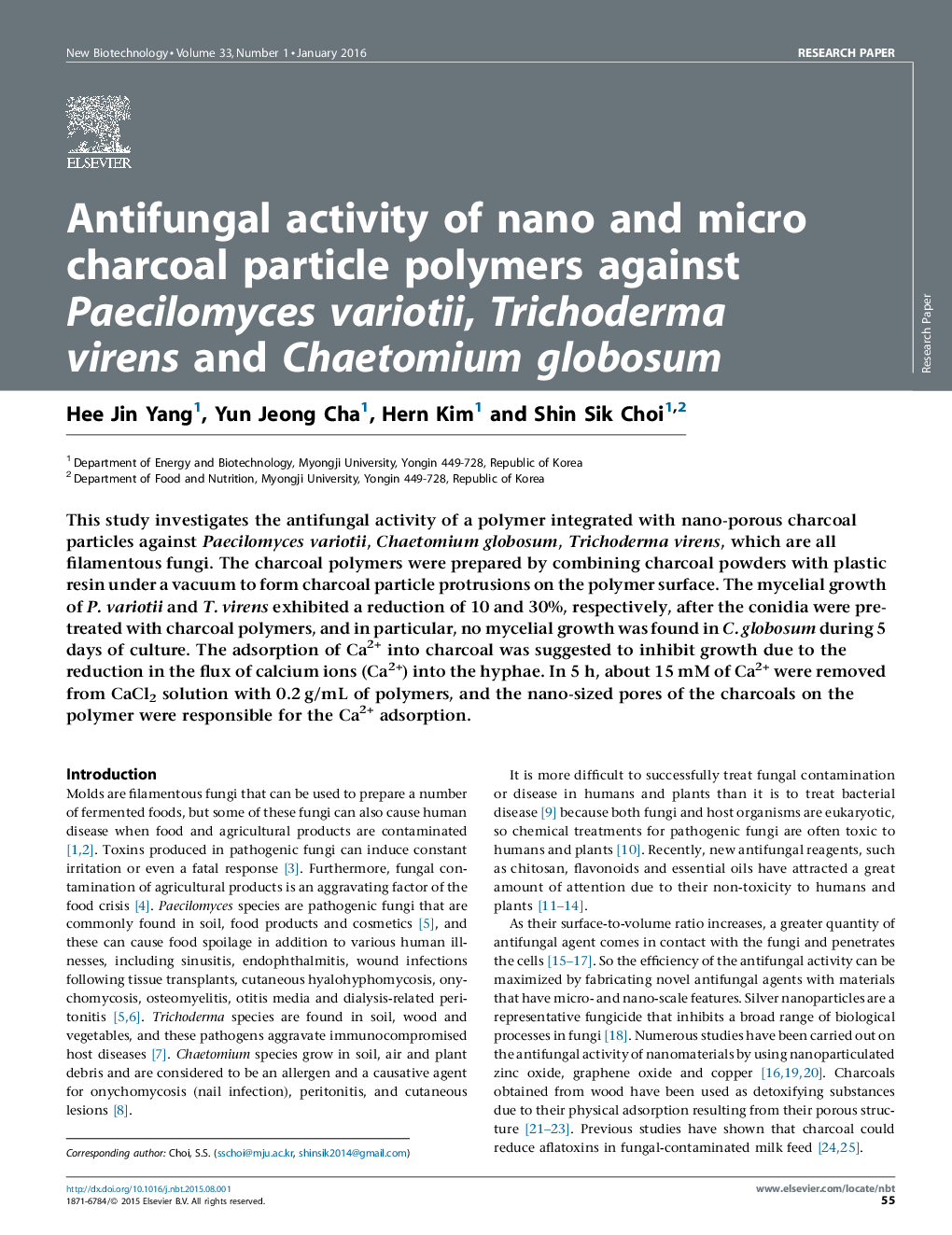| Article ID | Journal | Published Year | Pages | File Type |
|---|---|---|---|---|
| 33036 | New Biotechnology | 2016 | 6 Pages |
•Mycelial growth of P. variotii, T. virens and C. globosum was suppressed by charcoal polymers.•Protrusion of nano and micro sized charcoals were found on polymer surfaces.•Adsorption of Ca2+ by charcoals on polymer caused the inhibition of mycelial growth.•Nano-sized pores in charcoals were thought to participate in Ca2+ adsorption.
This study investigates the antifungal activity of a polymer integrated with nano-porous charcoal particles against Paecilomyces variotii, Chaetomium globosum, Trichoderma virens, which are all filamentous fungi. The charcoal polymers were prepared by combining charcoal powders with plastic resin under a vacuum to form charcoal particle protrusions on the polymer surface. The mycelial growth of P. variotii and T. virens exhibited a reduction of 10 and 30%, respectively, after the conidia were pre-treated with charcoal polymers, and in particular, no mycelial growth was found in C. globosum during 5 days of culture. The adsorption of Ca2+ into charcoal was suggested to inhibit growth due to the reduction in the flux of calcium ions (Ca2+) into the hyphae. In 5 h, about 15 mM of Ca2+ were removed from CaCl2 solution with 0.2 g/mL of polymers, and the nano-sized pores of the charcoals on the polymer were responsible for the Ca2+ adsorption.
Graphical abstractFigure optionsDownload full-size imageDownload as PowerPoint slide
